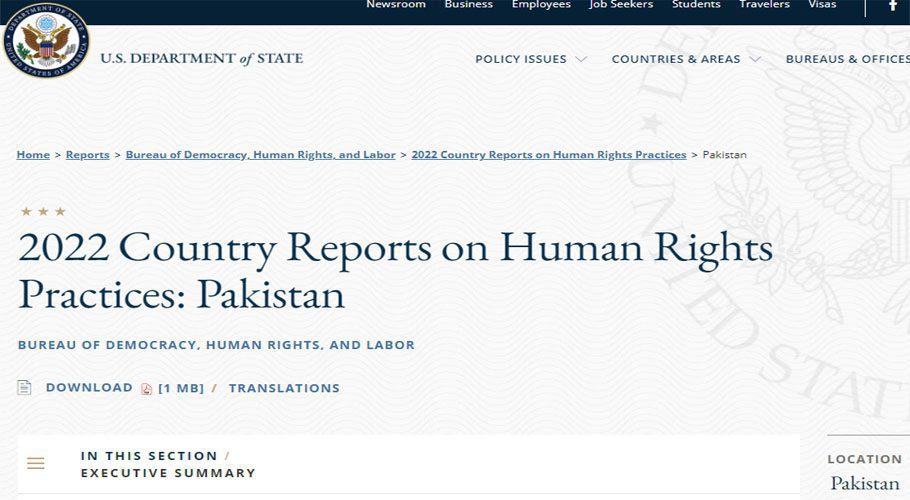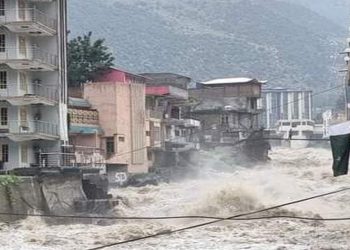WASHINGTON: The United States has documented serious human rights violations in Pakistan, ranging from arbitrary deprivation of life, politically motivated killings, enforced disappearances to torture, killings in exiles, denial of fair trial and other societal violence and discrimination.
In its annual report on global human rights, the US Department of State has has written down reports on 7 sections covering respect for the integrity of the person, respect for civil liberties, freedom to participate in the political process, corruption and lack of transparency in government, governmental posture towards international and nongovernmental investigation of alleged abuses of human rights, discrimination and societal abuses and workers rights.
The report says that while military and intelligence services officially report to civilian authorities, they operate independently and without effective civilian oversight or control. There were reports that members of the security forces committed numerous abuses.
It says that significant human rights issues included credible reports of: unlawful or arbitrary killings, including extrajudicial killings by the government or its agents; forced disappearance by the government or its agents; torture and cases of cruel, inhuman, or degrading treatment or punishment by the government or its agents; harsh and life-threatening prison conditions; arbitrary detention; political prisoners; transnational repression against individuals in another country; arbitrary or unlawful interference with privacy; serious restrictions on free expression and media, including violence against journalists, unjustified arrests and disappearances of journalists, censorship, and criminal defamation laws, and laws against blasphemy; serious restrictions on internet freedom; substantial interference with the freedom of peaceful assembly and freedom of association, including overly restrictive laws for the operation of nongovernmental organizations and civil society organizations; severe restrictions of religious freedom; restrictions on freedom of movement; serious government corruption; lack of investigation of and accountability for gender-based violence; crimes involving violence or threats of violence targeting members of racial and ethnic minorities; crimes involving violence or threats of violence targeting lesbian, gay, bisexual, transgender, queer, or intersex persons; the existence or use of laws criminalizing consensual same-sex sexual conduct between adults; restrictions on workers’ freedom of association; and existence of the worst forms of child labor.
The State Department report further said that there was a lack of government accountability, and abuses, including corruption and misconduct by security services, often went unpunished, fostering a culture of impunity among perpetrators. Authorities seldom investigated or punished government officials for reported human rights abuses or acts of corruption.
It said that violence, abuse, and social and religious intolerance by militant organizations and other nonstate actors, both local and foreign, contributed to a culture of lawlessness. Terrorist violence and human rights abuses by nonstate actors contributed to human rights problems, with terrorist violence exceeding that of the prior year. Terrorist and cross-border militant attacks against civilians, soldiers, and police caused hundreds of casualties. Military, police, and other law enforcement agencies continued to carry out significant campaigns against militant and terrorist groups.

































